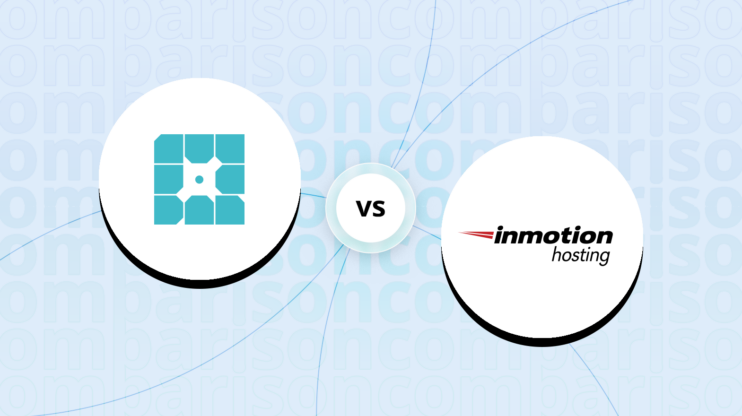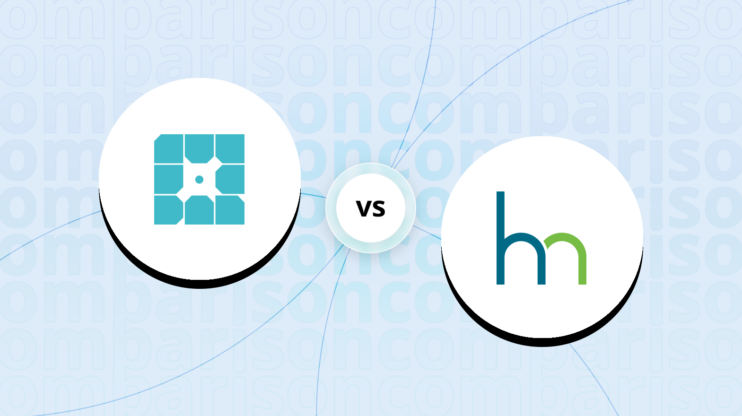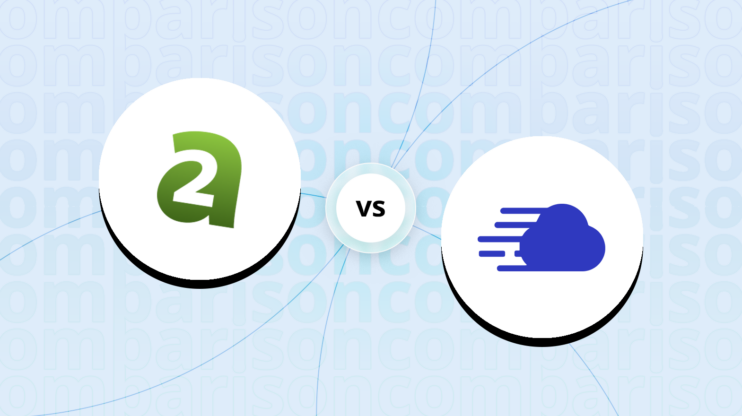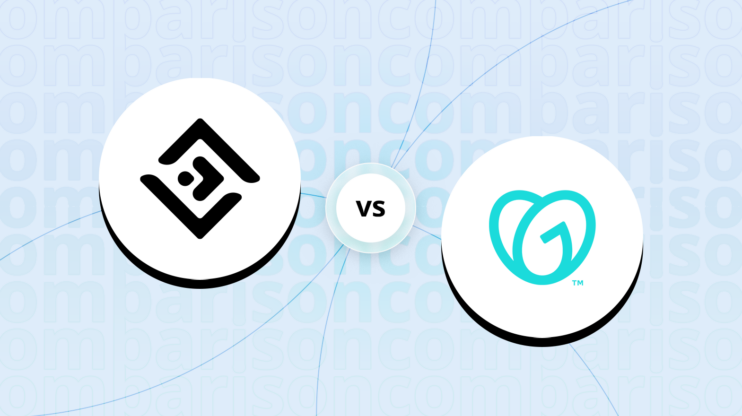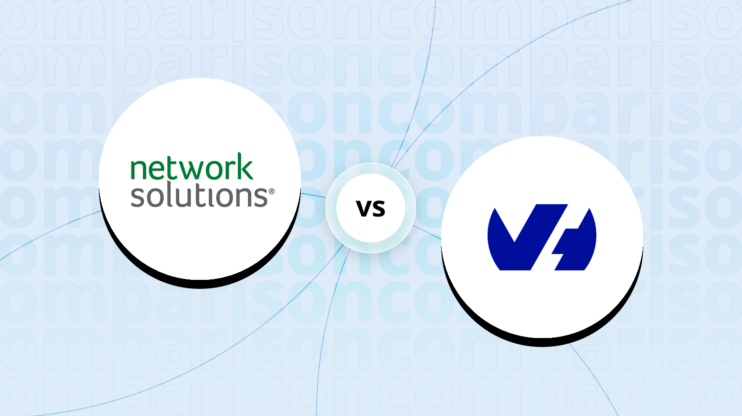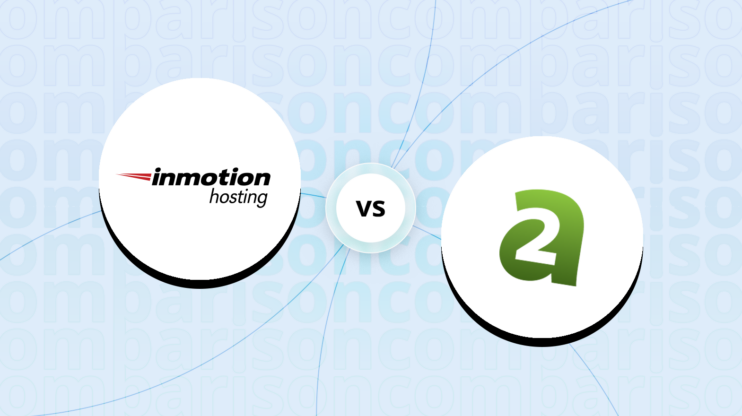Godaddy vs Liquid Web: Final verdict
Looking over GoDaddy vs. Liquid Web, each platform caters to different needs with its strengths and weaknesses.
-
Liquid Web (Overall grade: 8.4)
offers robust performance with a 100% uptime guarantee and high availability solutions, making it ideal for high-traffic and enterprise websites. It’s well-suited for agencies and businesses requiring extensive managed services due to its comprehensive support, load balancing, and enterprise-grade security features like F5 AIP Intrusion Detection System and data encryption options. Liquid Web’s autoscaling feature is particularly useful for easily handling traffic spikes, and its compliance with major standards like GDPR, PCI, and HIPAA makes it a strong choice for organizations needing stringent regulatory adherence. However, the lack of shared WordPress hosting and higher price points compared to GoDaddy may be a drawback for budget-conscious users and smaller websites.
GoDaddy (Overall grade: 7.8)
shines as an accessible and beginner-friendly hosting provider with versatile hosting plans, including shared and WordPress hosting. Its features, like an AI site builder, free domain services for the first year, and unmetered bandwidth, make it an attractive choice for smaller businesses and individuals new to web hosting. GoDaddy’s extensive data centers ensure competitive performance with quick server response times, and its global presence caters well to a broad user base. However, occasional short downtimes and limitations in managed support plans for more complex needs slightly mar its overall offering. The ease of use, affordability, and variety of free features grant GoDaddy an edge for general consumer use.
 Overall grade:7.8 |
 Overall grade:8.4 |
|
|---|---|---|
| Uptime and Availability | 8.6 | 9.2 |
| Hosting Performance | 8.1 | 7.7 |
| Hosting Security | 8.6 | 9.3 |
| Price | 7.7 | 8.0 |
| Hosting Features | 7.1 | 6.4 |
| Ease Of Setup | 8.7 | 8.7 |
| User Management | 5.0 | 8.3 |
| Customer Support | 8.2 | 9.4 |
| User feedback | 3.9/5 | 4.3/5 |
Hosting types offered
Both platforms provide a variety of hosting types, each designed to meet the different needs of users.
 |
 |
|
|---|---|---|
| Shared hosting | ||
| Cloud hosting | ||
| WordPress hosting | ||
| Ecommerce hosting | ||
| VPS hosting | ||
| Dedicated hosting |
Although both offer a variety of hosting plans tailored to different needs, in
certain cases, one platform may prove to be more suitable.
Detailed comparison
Uptime and availability
Evaluates the average uptime statistics, uptime guarantee and overall availability of the hosting
provider
Score Components:
- Uptime percentage (30%): evaluates the uptime statistics in given period of time
- Uptime guarantee (20%): Assesses if the platform offers an uptime guarantee and
whether the actual uptime matches the promised guarantee. - General performance (25%): Evaluates how fast is the average response time and overall
it’s stability. - Responsiveness (10%): Adaptability to different devices and screen sizes.
- Availability (25%): Reflects the total downtime and number of outages.
 8.6
8.6
 9.2
9.2
🏆 Winner
Liquid Web: Offers a 100% uptime guarantee with strong customer service.
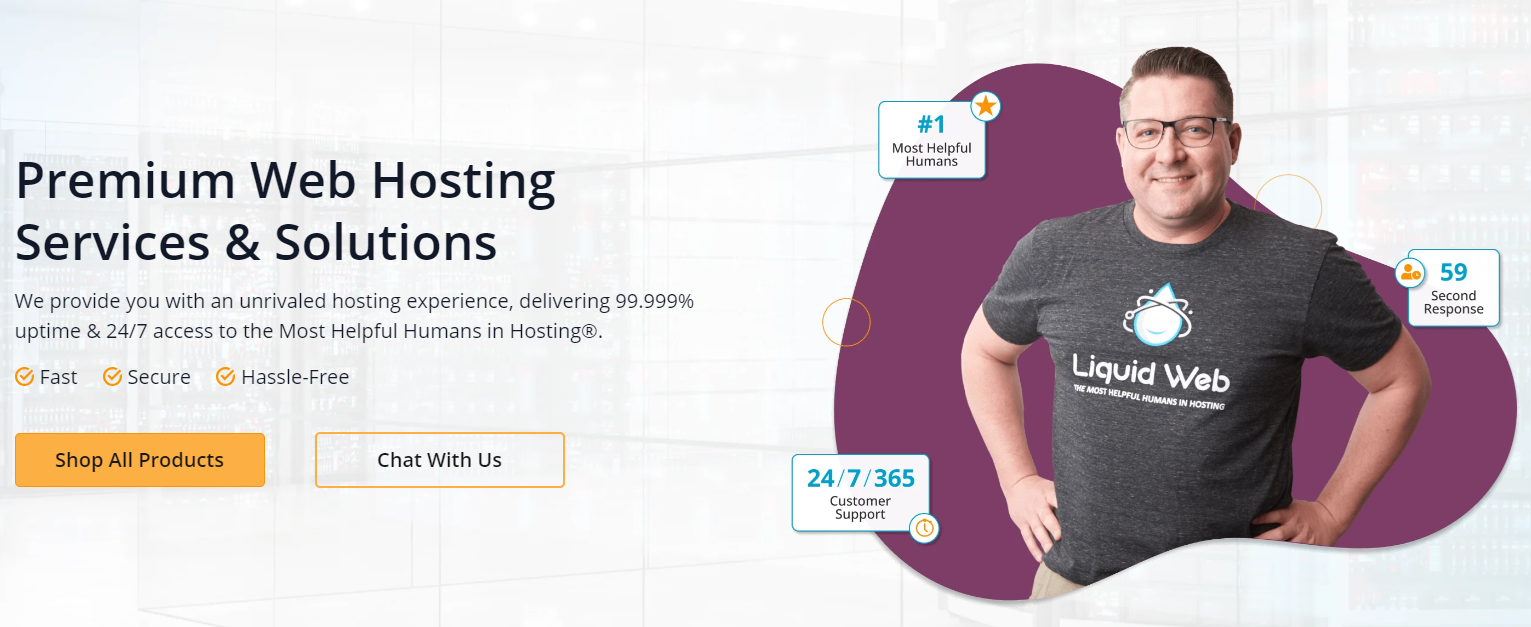
GoDaddy promises a reasonable 99.9% uptime guarantee and has generally met this metric, achieving a 99.98% uptime rate in testing. It boasts quick server response times and an adequate average global load time, especially in the US. Frequent short downtimes, particularly with WordPress hosting, and limited compensation for downtime, somewhat mar its otherwise solid record.

Liquid Web provides a more substantial offering with a 100% uptime guarantee and extensive credits for any downtime. It employs proactive monitoring and quick hardware replacements to ensure continuous service. Additionally, Liquid Web’s customer service is highly responsive, with guaranteed initial response times, making it a reliable choice for consistent uptime and support.
Which one has better hosting performance?
Score Components:
- Hosting speed (30%): This includes SSD quality, Load times, PageSpeed score ranges,
additional information on website speed, built-in plugins for performance enhancement, available caching
methods, and CPU/RAM options - CDN (20%): Considers whether CDN is available or not, whether it’s free or paid, and
the quality of the CDN service - Available data centers (30%): Evaluates the number of data centers and their locations
globally. - Scalibility (20%): Looks at whether elastic scaling is available, the process required
to scale (manual upgrade vs. automatic scaling), the presence of dedicated servers, and the costs
associated with scaling.
 8.1
8.1
 7.7
7.7
🏆 Winner GoDaddy: Versatile hosting with global data centers and competitive performance.
GoDaddy and Liquid Web both promise impressive hosting performance, but they cater to different needs. GoDaddy provides optimized servers with up to 40% faster response times, enhanced by global data centers in North America, Europe, and Asia-Pacific. Liquid Web, on the other hand, utilizes a robust 10 Gbps network, AMD EPYC, and Intel Xeon processors in its VPS and Cloud Dedicated Servers. Both offerings focus on speed; however, GoDaddy shines with its unmetered bandwidth and NVMe SSD storage in all plans. GoDaddy does not mention a CDN, whereas Liquid Web offers a free Gigabit uplink that may substitute a content distribution network. Data center locations are a tie, but GoDaddy’s detailed SSL and DDoS defense give it a slight edge for overall performance.
Website Speed
GoDaddy’s focus on NVMe storage and optimized servers translates to faster load times, ensuring quick response for websites even during peak traffic. The availability of AutoSSL and one-click WordPress installs simplifies site management while maintaining speed. Liquid Web, with its arsenal of AMD and Intel processors and its 10 Gbps network, supports high-speed performance reliably. Both hosting providers offer free SSL to enhance security and speed up HTTPS connections, giving GoDaddy and Liquid Web users excellent website speeds overall.
Scalability
GoDaddy offers dedicated resources in its Web Hosting Plus plans for sites that experience high traffic, but you’ll need to upgrade plans manually. Their VPS plans also offer scalable NVMe storage, becoming progressively more expensive with increased resources. Liquid Web excels in scalability with its easy autoscaling feature, adjusting server resources automatically based on demand. Liquid Web plans can be upgraded or downgraded with limited downtime, making it easier to scale without major interruptions. Dedicated servers are available to handle high loads, and costs increase with resource upgrades similar to GoDaddy.
Which one has better security features?
and regulatory requirements
Score Components:
- Technical security measures (40%): This includes encryption, firewalls, DDoS
protection, secure configurations, server monitoring, access control and availability of security addons
(e.g Sitelock security). - Operational security measures (30%): Encompasses data privacy, backups and data
redundancy. - Compliance and certifications (20%): Adherence to legal and regulatory requirements
(e.g., GDPR, HIPAA) and possession of certifications (e.g., ISO 27001, SOC 2). - Business and reliability (10%): Factors in the provider’s reputation, uptime
guarantees, and customer support.
 8.6
8.6
 9.3
9.3
🏆 Winner
Liquid Web: Offers a range of robust security features and comprehensive compliance measures.
Both GoDaddy and Liquid Web have notable differences in their approaches to technical and operational
security, as well as in their compliance with regulations.
Technical security measures:
GoDaddy provides AutoSSL with free auto-renewing DV SSL certificates and supports the latest PHP versions, ensuring an up-to-date hosting environment. Additionally, CloudLinux enhances resource balancing, and Cage FS offers continuous content protection. On the other hand, Liquid Web employs a hardened server configuration, F5 AIP Intrusion Detection System, and data encryption options. Its web application firewall doesn’t require extra hardware, and DDoS attack protection adds another layer of defense. Both offer strong technical security, but Liquid Web’s advanced intrusion detection gives it an edge.
Operational security measures:
GoDaddy includes managed SSL services, daily backups, DDoS protection, malware scanning, and global data centers. Their 24/7 support is also notable for providing award-winning customer service. Liquid Web provides extensive 24/7 on-site support, firewalls, VPNs for business resiliency, and compliance scans, enhancing both real-time and background security. Liquid Web’s operational security is bolstered by quarterly PCI scans and comprehensive reporting, which makes it stand out in round-the-clock monitoring and remediation.
Compliance and certifications:
GoDaddy is fully GDPR and PCI compliant, with its products like WooCommerce Hosting aligned with PCI requirements. Liquid Web meets GDPR, PCI, and HIPAA compliance, offering services specific to each regulation with strong data protection and privacy measures. Liquid Web’s SSAE-22 certification affirms its commitment to security standards. The broader range of compliance and certifications that Liquid Web offers makes it particularly suitable for organizations requiring stringent regulatory adherence.
 |
 |
|
|---|---|---|
SSL certificate |
AutoSSL, Managed, and Self-Managed SSL |
SSL certificates |
Additional security |
WAF, daily backups, DDoS protection |
Firewalls, VPN, F5 AIP Intrusion Detection |
PHP versions |
Latest PHP versions 7.4 and 8.0 |
Various PHP versions |
GDPR compliance |
Yes |
Yes |
HIPAA compliance |
Not specified |
Yes |
PCI compliance |
Yes |
Yes |
Hosting features
Score Components:
- Domains (20%): Assesses the availability of a free domain, domain purchase options, and
pricing - Email (15%): Considers if the provider offers full email hosting, or is reselling
third-party service, and if the email is only transactional or not - Website builder (15%): Checks if website builder is available, and it’s user
friendliness and overall the level of customization allowed. - Staging environment (20%): Determines if a staging environment is available, allowing
for testing changes before going live. - FTP & SFTP accounts (10%): Evaluates if and how easily users can access FTP and
SFTP accounts - Git and SSH access (20%): Assess whether Git is integrated into the hosting service and
if SSH access is provided
 7.1
7.1
 6.4
6.4
🏆 Winner
GoDaddy: GoDaddy offers a comprehensive range of features suitable for various user needs.
GoDaddy and Liquid Web both present robust hosting solutions with distinct features catering to different target audiences. GoDaddy offers a more user-friendly experience, particularly appealing to beginners and small businesses looking for an easy-to-use website builder and free domain services for the first year. Their web hosting plans are segmented into multiple performance tiers, allowing flexibility and scalability with features like free email, SSL certificates, and automated backups. Liquid Web, on the other hand, excels in providing high-performance and fully managed hosting solutions, making it a preferred choice for enterprises and complex hosting environments. Their managed VPS hosting includes advanced security features such as DDoS protection and integrated firewalls. Liquid Web’s VMware Private Cloud and High Availability Hosting cater to businesses needing robust uptime guarantees and compliant solutions for HIPAA and PCI.
One of GoDaddy’s standout features is its free and user-friendly WordPress migration tool, which simplifies the process of transferring an existing site. The inclusion of free, unlimited SSL for all websites and free email across their hosting plans is a significant advantage for cost-conscious users. Liquid Web’s commitment to proactive server management, including security updates and monitoring, ensures reliable performance and peace of mind for larger businesses or those with more complex IT requirements. Both providers support FTP and SSH access, although Liquid Web offers a more extensive level of control with root access. Availability of managed services and benefits like staging environments, daily backups, and enhanced performance with CDN make both companies competitive in the market. However, GoDaddy’s variety of free features and better pricing plans give it an edge for general consumer use.
 |
 |
|
|---|---|---|
| Free Domain | Yes, for the first year | Yes |
| Free SSL | Yes, for the first year | Yes |
| Email Hosting | Yes | Yes |
| Website Builder | No | No |
| Staging Environment | Yes | Yes |
| FTP & SFTP Accounts | Yes (implied by SSH) | Yes (implied by SSH) |
| Git and SSH Access | Yes | Yes |
| Free Backup | Yes | Yes |
| Money Back Guarantee | Yes | No |
As a result in rare cases the features mentioned here can differ from the ones you see on their websites.
Both providers support a range of users from beginners to experts with user-friendly website builders and WordPress staging areas. However, in terms of developer tools, both GoDaddy and Liquid Web offer robust options including SSH access, support for multiple programming languages, and Git for version control, thus appealing to developers looking for advanced capabilities.
Email services:
GoDaddy’s email hosting is included in their web hosting packages, making it easy for users to set up and manage their own email accounts, send newsletters, and run campaigns. Liquid Web also offers robust email hosting but stands out due to its customizable options and integration with third-party services like Google Workspace and Microsoft Outlook. Both providers support transactional email capabilities, but GoDaddy is more geared towards small to medium enterprises, while Liquid Web handles more complex needs exceptionally well.
Price
Score Components:
- Plan value (40%): What each pricing tier offers.
- Transparency and clarity (30%): Clearness of pricing structures.
- Flexibility of plans (20%): Range of options to suit different budgets.
- Hidden costs (10%): Additional expenses not included in the plan.
 7.7
7.7
 8.0
8.0
🏆 Winner
Liquid Web: Liquid Web scores slightly higher overall, mainly due to the robust features included in their plans and the transparency of what’s included.
Evaluating the pricing of plans among various hosting providers can be complex due to their differing pricing and renewal strategies. Additionally, certain plans require annual commitments, which adds to the difficulty of making comparisons. The prices listed are based on monthly commitments; plans requiring annual commitments are indicated. Additionally, although some providers offer identical plans for WordPress and shared hosting, we have created separate tables for each to enhance clarity.
When comparing GoDaddy and Liquid Web, GoDaddy offers a variety of budget-friendly options in shared and WordPress hosting, ideal for small to medium-sized websites. GoDaddy’s pricing starts at $5.99/mo for shared hosting and offers additional features like free domain names and SSL certificates. On the other hand, Liquid Web focuses on higher-performance and larger-scale operations with notably higher price points but offers expanded storage, bandwidth, and performance-enhancing features. Liquid Web’s plans are geared towards users requiring more robust infrastructure, featuring more PHP workers and autoscaled workers in their WordPress and WooCommerce plans, alongside extensive enterprise options.
 |
 |
|---|---|
|
Managed WordPress Basic $12.99
1 website, 10 GB NVMe storage, Free Domain, Free SSL Certificate, WordPress pre-installed, AI creation tool, Weekly backups, Web Application Firewall, Automated malware scans & removal. Value for price:7.0
|
SPARK $21
1 site, 15GB storage, 2TB bandwidth, 10 PHP workers per site, 20 autoscaled PHP workers per site. Value for price:7.8
|
|
Managed WordPress Deluxe $13.99
1 website, 20 GB NVMe storage, Free Domain, Free SSL Certificate, WordPress pre-installed, AI creation tool, Daily backups, Web Application Firewall, Automated malware scans & removal, Up to 2x faster performance with CDN, Enhanced security with DDoS protection, Staging site. Value for price:7.5
|
SPARK+ $43
3 sites, 25GB storage, 2.5TB bandwidth, 15 PHP workers per site, 25 autoscaled PHP workers per site. Value for price:8.0
|
|
Managed WordPress Ultimate $15.99
1 website, 30 GB NVMe storage, Free Domain, Free SSL Certificate, WordPress pre-installed, AI creation tool, Daily + on-demand backups, Web Application Firewall, Automated malware scans & removal, Up to 2x faster performance with CDN, Enhanced security with DDoS protection, Staging site, SEO Optimizer, WordPress code optimizer, Smart WordPress plugin manager, Sell online with WooCommerce, Priority Support. Value for price:8.0
|
MAKER $87
5 sites, 40GB storage, 3TB bandwidth, 20 PHP workers per site, 30 autoscaled PHP workers per site. Value for price:8.3
|
 |
 |
|---|---|
|
Web Hosting Economy $5.99
1 website, 10 databases, 25 GB NVMe storage, Shared RAM and vCPU resources, Free domain, Free email, Free SSL Certificate (1 year), 30-day money-back, Free WordPress migration tool. Value for price:7.0
|
N/A
Value for price:N/A
|
|
Web Hosting Deluxe $7.99
10 websites, 25 databases, 50 GB NVMe storage, Shared RAM and vCPU resources, Free domain, Free email, Free SSL Certificate (1 year), 30-day money-back, Free WordPress migration tool. Value for price:7.2
|
N/A
Value for price:N/A
|
|
Web Hosting Ultimate $12.99
25 websites, 50 databases, 75 GB NVMe storage, Shared RAM and vCPU resources, Free domain, Free email, Free SSL Certificate (1 year), 30-day money-back, Free WordPress migration tool. Value for price:7.8
|
N/A
Value for price:N/A
|
|
Web Hosting Maximum $17.99
50 websites, 100 databases, 100 GB NVMe storage, Shared RAM and vCPU resources, Free domain, Free email, Free SSL Certificate (1 year), 30-day money-back, Free WordPress migration tool. Value for price:7.9
|
N/A
Value for price:N/A
|
 |
 |
|---|---|
|
1 vCPU / 2GB RAM $8.99
1 vCPU core, 2 GB RAM, 40 GB NVMe SSD Storage, Snapshot backups, Linux only, cPanel or Plesk available, 1 additional IP available upon request, Global data centers. Value for price:8.0
|
ESSENTIAL $20
2 vCPU, 2 GB RAM, 40 GB SSD Storage, 10 TB Bandwidth, AlmaLinux. Value for price:8.4
|
|
2 vCPU / 4GB RAM $17.99
2 vCPU cores, 4 GB RAM, 100 GB NVMe SSD Storage, Snapshot backups, Linux or Windows compatible, cPanel or Plesk available, 2 additional IPs available upon request, Global data centers. Value for price:8.2
|
ADVANCED $30
4 vCPU, 4 GB RAM, 100 GB SSD Storage, 10 TB Bandwidth, AlmaLinux. Value for price:8.7
|
|
4 vCPU / 8GB RAM $34.99
4 vCPU cores, 8 GB RAM, 200 GB NVMe SSD Storage, Snapshot backups, Linux or Windows compatible, cPanel or Plesk available, 3 additional IPs available upon request, Global data centers. Value for price:8.4
|
PROFESSIONAL $40
8 vCPU, 8 GB RAM, 150 GB SSD Storage, 10 TB Bandwidth, AlmaLinux. Value for price:8.9
|
|
4 vCPU / 16GB RAM $44.99
4 vCPU cores, 16 GB RAM, 200 GB NVMe SSD Storage, Snapshot backups, Linux or Windows compatible, cPanel or Plesk available, 3 additional IPs available upon request, Global data centers. Value for price:8.5
|
ELITE $50
12 vCPU, 12 GB RAM, 200 GB SSD Storage, 10 TB Bandwidth, AlmaLinux. Value for price:9.0
|
As a result in rare cases the prices displayed here can differ from the ones you see on their websites.
Enterprise plans
GoDaddy’s top offering, the “Web Hosting Maximum,” supports up to 50 websites with 100 GB NVMe storage for $17.99/mo. Liquid Web stands out as the more suitable choice for large-scale, high-demand enterprise applications.
Enterprise options from Liquid Web include the “ENTERPRISE” plan for Managed WooCommerce, which offers 800GB storage, 10TB bandwidth, PHP workers, and can manage up to 30 stores, priced at $1,095/mo. Their “EXECUTIVE” plan for Managed WordPress supports up to 250 sites at the same pricing tier with 800GB storage and advanced PHP worker features. GoDaddy’s top offering, the “Web Hosting Maximum,” supports up to 50 websites with 100 GB NVMe storage for $17.99/mo. Liquid Web stands out as the more suitable choice for large-scale, high-demand enterprise applications.
Godaddy vs Liquid Web: Ease of setup
platform.
Score Components:
- Site migration (25%): Assesses whether the provider offers tools for site migration,
either automated or manual, and whether these services are free or require a fee. - Admin panel usability (35%): Evaluates the type of admin panel provided, such as the
standard cPanel or a custom solution, focusing on its accessibility and user-friendliness for both
technical and non-technical users. - Setup features (20%): Examines the availability and ease of use of various setup
features, including FTP accounts, file managers, email account setup, PHPMyAdmin, and easy CDN
configuration. - Help center quality (20%): Measures the quality and accessibility of the provider’s
help center resources, including articles and tutorials.
 8.7
8.7
 8.7
8.7
🏆 Winner GoDaddy: An accessible and beginner-friendly hosting provider with user-centric features.
GoDaddy uses an industry-standard cPanel, which is widely known and appreciated for its intuitive interface. This makes it easier for both technical and non-technical users to manage their websites. Features like one-click setup for popular applications such as WordPress and automatic daily backups are provided for seamless website management. The accessibility of GoDaddy’s control panel means users can quickly install apps, handle security measures, and manage backups, enhancing the overall user experience.
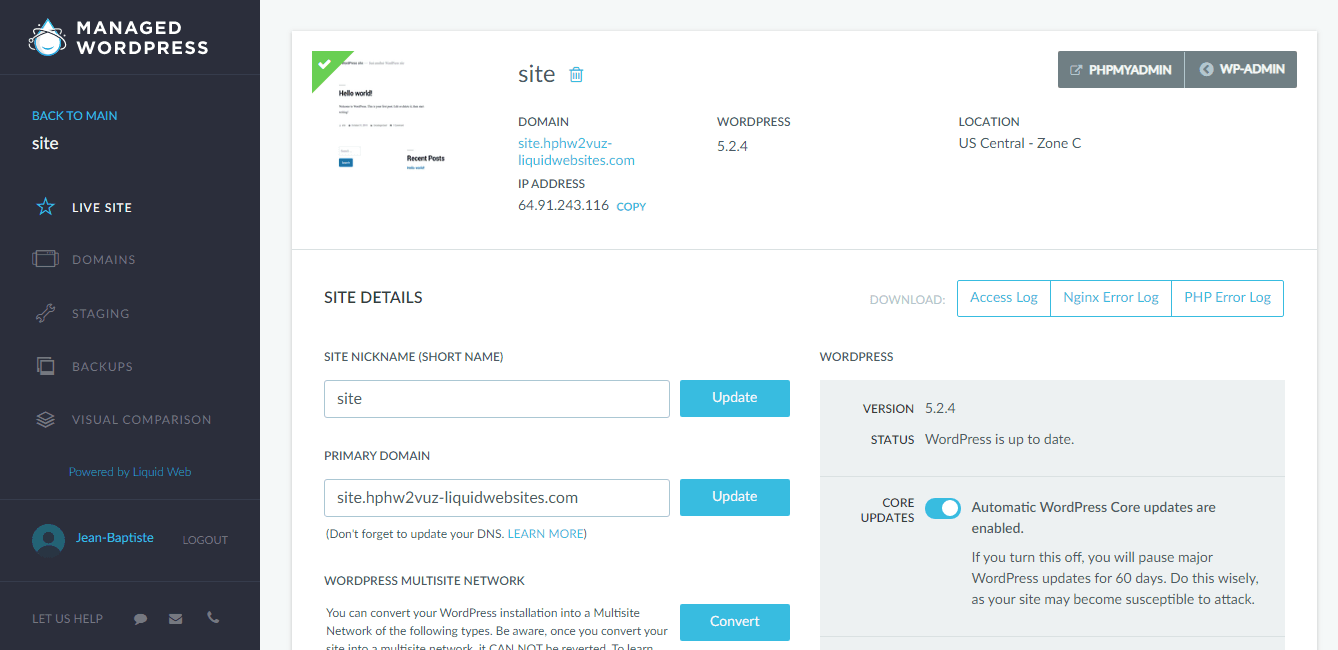
Liquid Web also utilizes a user-focused interface, providing a structured control panel tailored to more advanced and intricate hosting environments. Their admin panel is designed to easily manage complex hosting requirements while offering a streamlined experience for standard needs. This setup is appealing to users who need extensive control over their server and OS updates along with full management capabilities. The proactive approach Liquid Web takes in managing network, security, and availability ensures that users can focus on their core tasks.
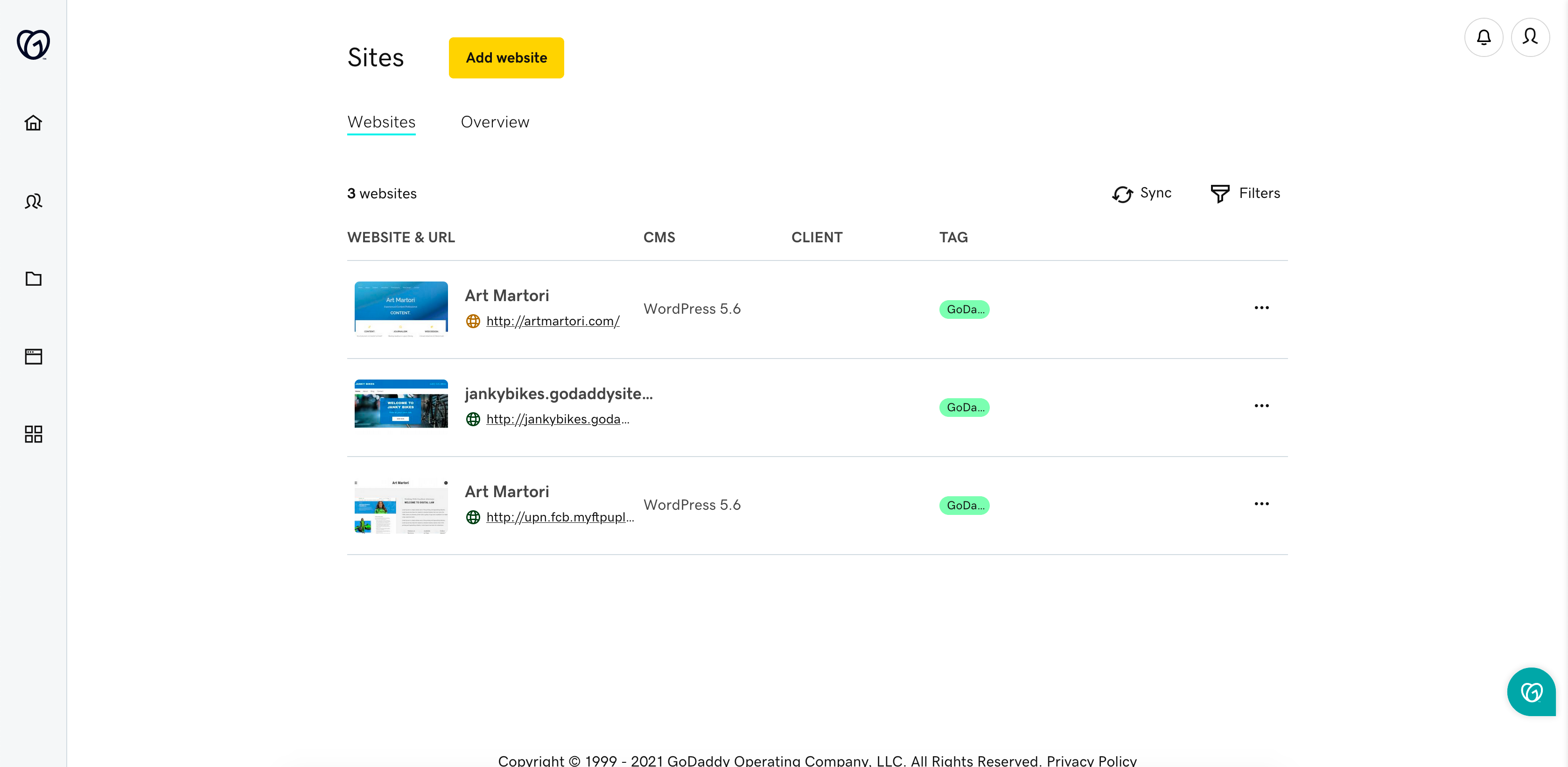
Both GoDaddy and Liquid Web offer tools for website migration. GoDaddy features a free WordPress migration tool, facilitating the transfer of sites without additional costs. This makes it a go-to option for those looking to move their WordPress sites without financial or technical barriers. On the other hand, Liquid Web provides assistance in migrating sites, stores, and applications with personalized support. While they don’t specify whether this service is free, they emphasize human support throughout the migration process.
GoDaddy’s help center includes 24/7 customer support via phone and chat, a comprehensive FAQ section, and a range of help articles covering various aspects of web hosting. Users also have access to their GoDaddy Guide for personalized assistance. Liquid Web offers an industry-leading knowledge base with detailed articles and resources. Their support guarantees ensure quick responses via phone, chat, and helpdesk. Both providers ensure users have plenty of resources to tackle common issues and improve their website management capabilities.
User management
accessibility.
Score Components:
- Role customization (40%): Flexibility in creating and defining user roles and
permissions. - Ease of management (30%): User interface and tools for managing users.
- Access control (20%): Effectiveness of access control measures for different user
levels. - Scalability (10%): Ability to manage a growing number of users efficiently.
 5.0
5.0
 8.3
8.3
🏆 Winner: Liquid Web: Detailed and comprehensive user management through Plesk.
Liquid Web stands out in managing user roles, permissions, and accessibility. Plesk allows administrators to create varied user roles such as Administrator, Webmaster, Application User, and Accountant, providing flexibility depending on the user’s needs. Additionally, Plesk offers the ability to create custom user roles. In contrast, GoDaddy lacks detailed information and official documentation, making it harder to evaluate its comprehensive capabilities in user role management. Consequently, Liquid Web’s structured approach gives it a significant edge.
The tools and user interfaces for managing users on both platforms differ notably. Liquid Web, with its integration of Plesk, offers a clean, intuitive user interface making it straightforward to create and manage user accounts and roles. Users can efficiently access essential functions through a well-organized dashboard. On the other hand, GoDaddy’s user management interface reportedly lacks the same level of refinement and functionality, likely requiring users to delve into less intuitive processes.
Access control and user scalability are also areas where Liquid Web excels. Plesk’s access control measures are robust, providing detailed settings for each role, ensuring administrators can effectively manage permissions as an organization grows. This is particularly beneficial for larger or rapidly expanding teams. Information on GoDaddy’s access control measures remains vague, potentially signaling a less developed system that could result in challenges for scaling user management effectively.
Liquid Web user roles table:
| Role | Description | Access highlights |
|---|---|---|
| Administrator | Full access to Plesk control panel and server management. | Can manage all aspects of the server including creating and managing users, configuring services, and server settings. |
| Webmaster | Manages most aspects of subscriptions including creating sites. | Cannot manage Plesk users or roles. Can handle DNS, mail, FTP, and other essential web services. |
| Application User | Limited access. | Can utilize specific applications or services assigned to them. |
| Accountant | View subscription details without modification permissions. | Can see all subscription details but cannot change or influence any settings. |
Customer support
hosting provider.
Score Components:
- Support communication channels (30%): Measures the variety of customer support types
provided (live chat, chatbot, email, phone, etc.) - Availability (20%): Assesses the availability hours for each channel, including 24/7
support options. - Technical support quality (30%): Assesses whether the provider offers comprehensive
technical support, including hardware upgrades (e.g., HDD to SSD), software installations, and web
server configuration changes. - Enterprise support (20%): Checks if there are dedicated or priority support services
for enterprise-level customers.
 8.2
8.2
 9.4
9.4
🏆 Winner
Liquid Web: Offers extensive 24/7/365 customer service with quick response guarantees and dedicated support teams.
 |
 |
|
|---|---|---|
Phone support |
||
Live chat support |
||
Chatbot |
||
Email/ticket support |
||
Enterprise support (dedicated agent, priority support) |
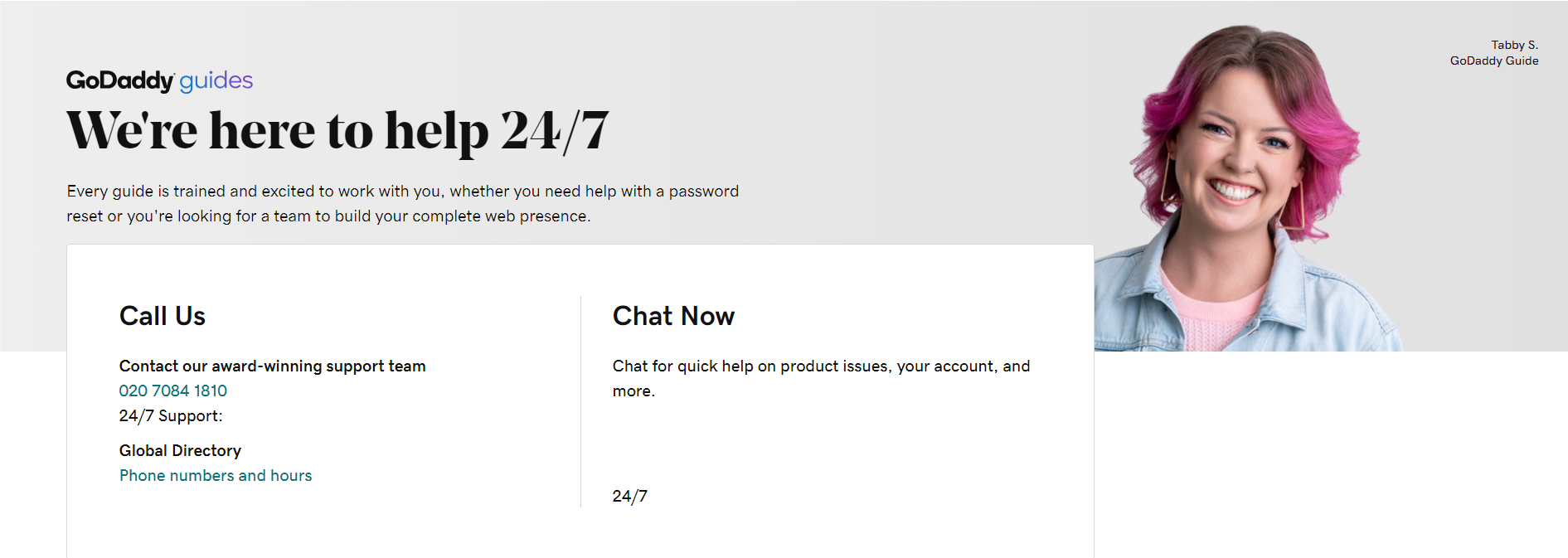
GoDaddy provides comprehensive customer support with 24/7 availability via phone and email, along with an extensive knowledgebase filled with articles, guides, and videos. They also offer free WordPress migration tools and daily backups. However, live chat is limited to their United States subdomain, and they do not offer dedicated support for enterprise clients.
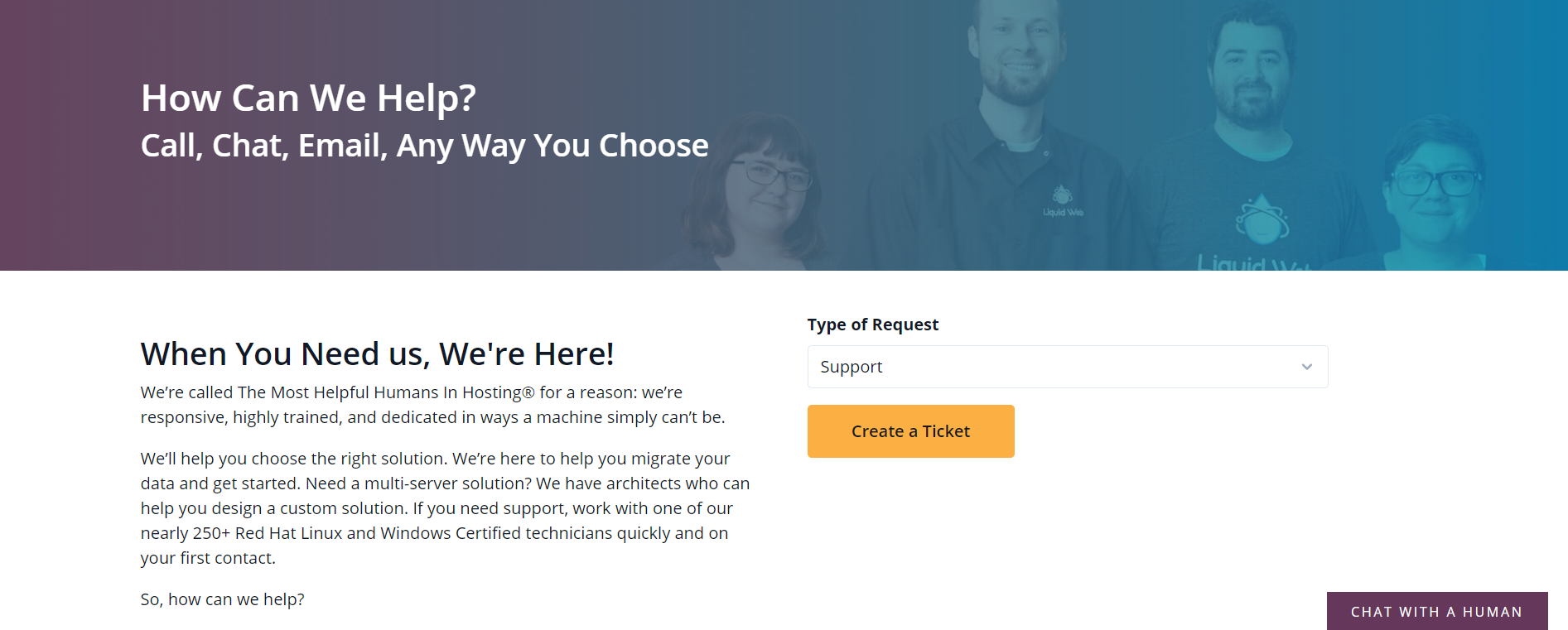
Liquid Web excels with its 24/7/365 support, guaranteeing quick response times via phone, chat, and helpdesk. They have a specialized support team known as Heroic Support® and provide dedicated teams for Windows and Linux. Liquid Web also offers extensive enterprise support with dedicated Customer Success Managers and Strategic Account Executives, ensuring a tailored experience for larger businesses.
Godaddy vs Liquid Web: User feedback
GoDaddy generally receives praise for its ease of use, affordability, comprehensive service offerings, and user-friendly interface, making it a popular choice for domain registration and basic web hosting. Many users appreciate the ability to purchase domains, web hosting, email services, and other digital products all in one place, along with frequent discounts for new customers. However, customer service experiences are inconsistent; while some users find it helpful and responsive, others report long wait times and unknowledgeable support staff. Additionally, recurring issues include high renewal costs, persistent upselling, and occasional technical difficulties.
Customer feedback for this hosting provider is mixed, with significant polarization in user experiences. While some have praised the company for its reliable uptime, exceptional support, and proactive monitoring, others have experienced severe dissatisfaction due to frequent downtimes, unresponsive customer service, and unethical billing practices. Long-term customers, in particular, have noted a sharp decline in service quality and support efficiency, attributing it to recent management changes. Despite positive reviews highlighting excellent technical support and overall reliability, a growing number of users advise against using this provider due to these negative aspects.
Godaddy vs Liquid Web: FAQ
Are both platforms suitable for beginners?
GoDaddy is more suitable for beginners due to its user-friendly interface and features like an AI site builder, free domain for the first year, and unmetered bandwidth. Liquid Web, on the other hand, is more complex and geared towards businesses requiring extensive managed services and high availability solutions.
Which hosting service offers better security features?
Liquid Web excels in security with features like a hardened server configuration, F5 AIP Intrusion Detection System, data encryption options, and compliance with standards like GDPR, PCI, and HIPAA. Although GoDaddy also offers decent security measures like AutoSSL and DDoS protection, Liquid Web’s advanced capabilities give it an edge.
Which hosting service offers more scalability options for growing websites?
Liquid Web offers superior scalability with its autoscaling feature that adjusts server resources automatically based on demand. While GoDaddy offers scalable VPS plans and dedicated resources in its Web Hosting Plus plans, upgrades must be done manually, making Liquid Web more efficient for growing websites.
What are the major differences in pricing and value between godaddy and liquidweb?
GoDaddy provides a variety of budget-friendly options, particularly for shared and WordPress hosting, making it ideal for small to medium-sized websites. Liquid Web, on the other hand, focuses on higher performance and larger-scale operations with higher price points but offers more robust features, expanded storage, and enhanced performance capabilities.
Which service is more suitable for hosting a high-traffic website?
Liquid Web is more suitable for hosting high-traffic websites due to its enterprise solutions, load balancing, high availability, dedicated resources, and robust security features. GoDaddy is better suited for smaller websites and users looking for affordable, general-purpose hosting plans.
The making of this blog
We followed a clear, step-by-step process to write and research this article.









